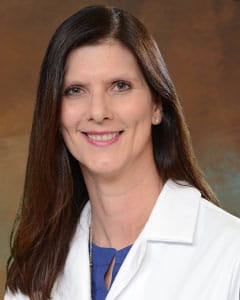How Depression Affects Cancer Patients
Cancer affects millions of people every year, but everyone has a different experience after receiving a diagnosis and during their treatment. As a clinical psychologist, I often hear misconceptions about how people are supposed to feel after they are diagnosed with cancer. There’s a myth that it is normal for cancer patients to experience depression—but I’m here to tell you that it isn’t true.
It is perfectly normal to have feelings of denial, anger, stress and even guilt after a cancer diagnosis. Fear and worry are also common feelings, but it is only when these sentiments start to affect your everyday life that it may be time to have a discussion with your doctor about a more serious medical condition—depression.
According to the National Cancer Institute, 15 to 20 percent of people with cancer experience depression. While cancer treatment generally focuses on the physical effects of the disease—eliminating tumors and stopping the spread of cancer—there also are emotional and psychological effects that may need to be addressed.
If you find yourself crying easily, losing sleep or not finding joy in the things that you used to love, then you should seek help. Your doctor can suggest different therapies and activities to help you deal with depression. While your doctor is the best person to prescribe a treatment for depression, there are some things that I encourage all cancer patients to do as a way to help avoid it or combat its effects.
Be as active as possible
After a cancer diagnosis, it’s important that you continue to take part in healthy activities that you’ve always enjoyed. This can help you maintain a sense of normalcy at a time when everything can feel awry.If you enjoyed certain hobbies or volunteer work prior to your diagnosis, keep doing them if you can. The people you’ve connected with in these social circles can provide support and encouragement that you may not otherwise experience if you stop these activities.
Exercise can also help. According to the American Cancer Society, research has shown that exercise can improve quality of life for many people with cancer. Moderate exercise can reduce fatigue, boost self-esteem, heart health and muscle strength. If you are undergoing chemotherapy or radiation, however, lower intensity exercises may be best. These activities can be very beneficial, but talk to your oncologist first before beginning any exercise regimen.
Try problem-solving therapy
Problem-solving therapy has proven effective in treating depression. It involves identifying the steps required to resolve an issue, devising several alternative solutions, selecting the best option and implementing it effectively. A recent study in the Lancet, found that integrating problem solving therapy with antidepressants into standard cancer treatment was significantly more helpful than usual care.Through a focus on finding solutions for problems and achieving goals, problem-solving therapy can teach us to cope with and overcome all of life’s challenges—including a cancer diagnosis.
Find people to lean on
Studies have shown that family and community support can have a positive impact on those dealing with cancer. One 2004 study of adults with cancer showed that patients and families that communicated more directly were more effective in resolving problems and had lower levels of depression and anxiety.Another recent study illustrates the correlation between pyschosocial support and better health outcomes. The study followed two groups of breast cancer patients over a 10-year period and found that those who received social and emotional support intervention had a reduction in recurrence and mortality risk of 45 and 56 percent, respectively.
Support groups, such as our Integrative Medicine program, can have a tremendous impact by addressing the social and emotional needs of people affected by cancer. These groups can also help to ensure cancer survivors are empowered with information, strengthened by action and supported by the community around them. To learn more about the Integrative Medicine program, watch the video below.
Be open and honest with yourself and your doctor
When it comes to fighting cancer, it is important to maintain a positive mental outlook—but that doesn’t mean you have to hide your feelings of anguish. Keeping feelings of sadness and depression bottled up inside can overwhelm you, and worsen the problem.When appropriate, your doctor can prescribe medication that can help you cope with these feelings. Other forms of therapy, such as problem-solving therapy and the support of family, friends and local groups, may help you overcome depression—but it all starts with identifying the problem and asking for help. Cancer isn’t meant to be fought alone, so you should never hesitate to seek help and get as much support as you need.


